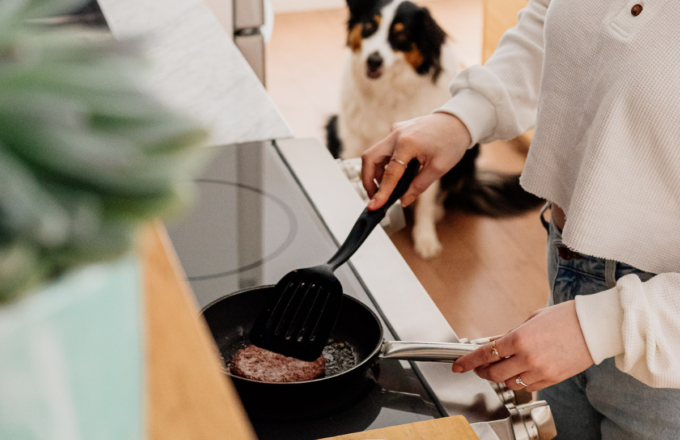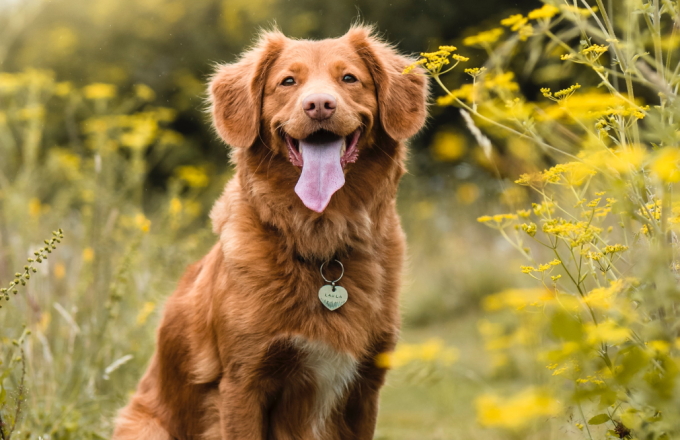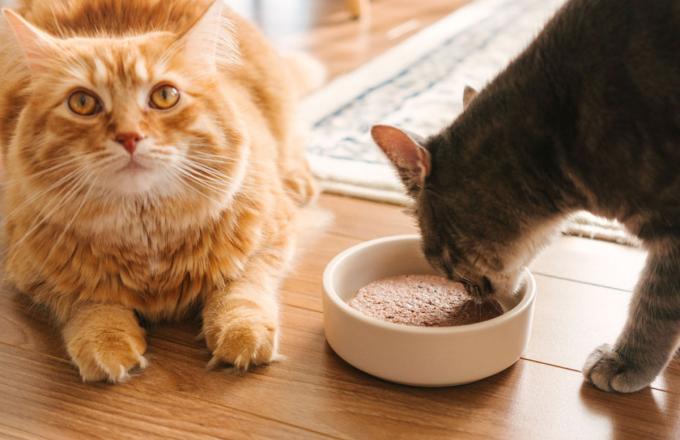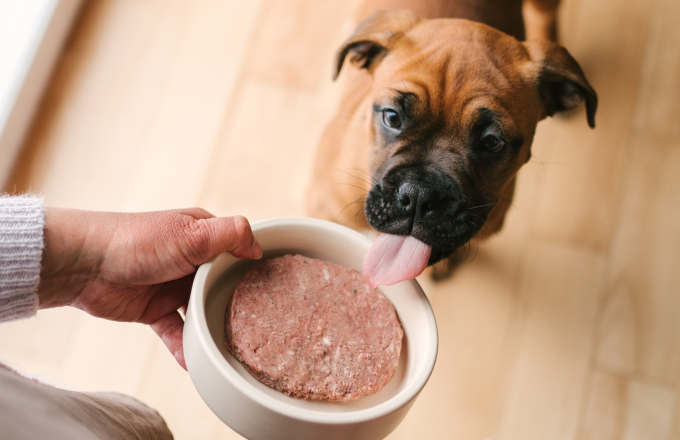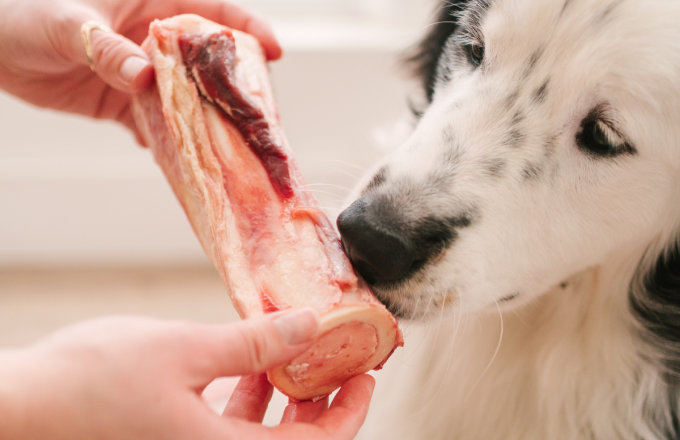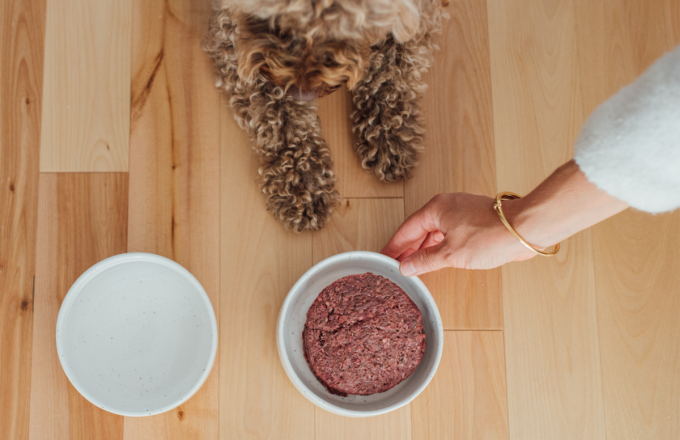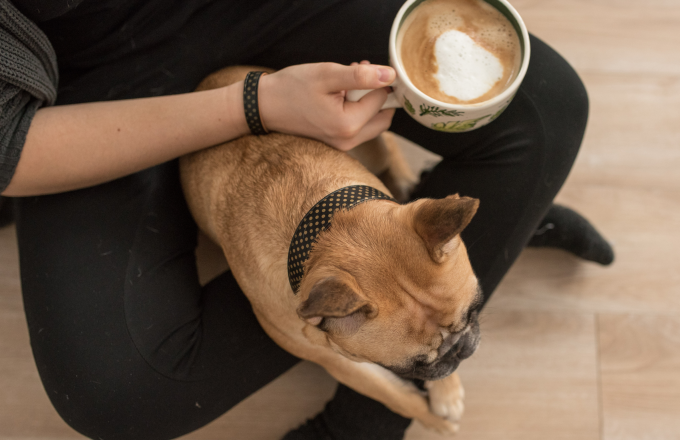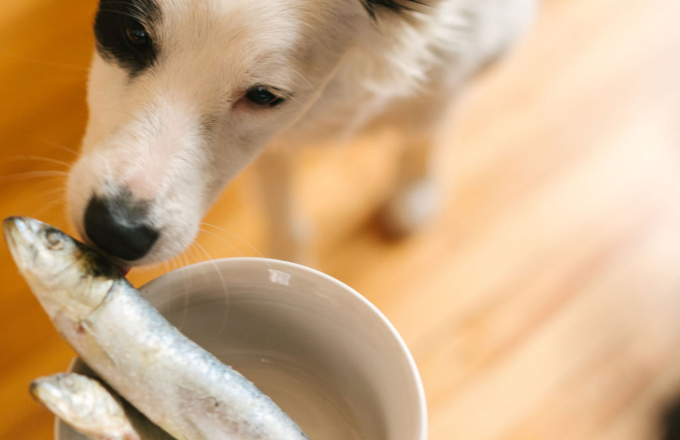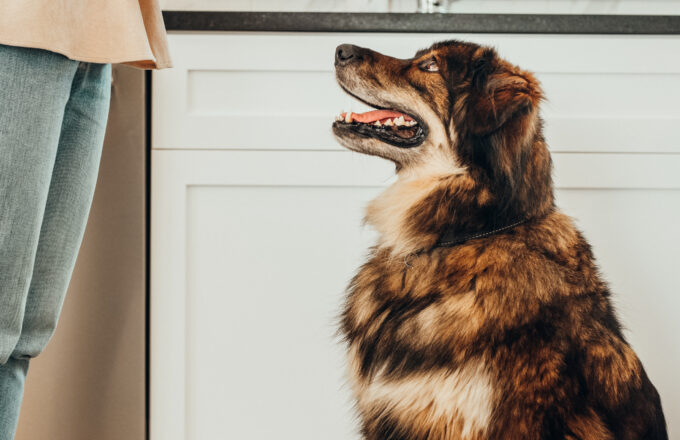Constipation in dogs: 6 tricks for natural relief
Constipation is nothing but unpleasant for humans. The same can be said for our dogs. While the problem can be mild, it can also be masking something greater. That’s why we recommend you keep an eye on your dog’s stools. Look at the colour, texture, smell, and quantity. They can be important indicators of your dog’s overall health.
How do I know if my dog is constipated?
Dogs should poop at least once a day. The frequency will vary depending on the animal. Constipation comes to mind when a dog hasn’t done their business in over 24 hours. However, look out for these signs if you suspect your dog may be constipated:
- Difficulty pooping
- Hard and dry stools
- Stools darker than usual
- Presence of mucus or blood in stool
- Crying while doing their business
- Dragging their behinds across the grass
What causes a dog to suffer from constipation?
Several factors can trigger constipation in dogs. Food is usually the culprit, but stress and other health problems can play a part. Before you worry, go through this list.
Diet
The first thing to question is your dog’s diet. Too much or too little fibre, or too much calcium or fat, could be the cause of the constipation.
Intestinal Blockage
Your dog will have the opportunity (and the inclination) to ingest foreign items, such as a piece of cloth, part of a shoe, a sock, stones, grass, and so on. These can stay stuck in the intestine and create a blockage that prevents stools from passing properly. If you think your dog has ingested something abnormal, don’t hesitate to see a veterinarian quickly to prevent the problem from getting worse.
Dehydration
Is your dog drinking enough? Lack of water causes stools in the colon to become dry, hard, and difficult to move.
Physical activity
Movement is excellent for your dog’s health. That includes their intestinal flora. A sedentary dog will have a slower transit. Defecating can be difficult if your dog lacks physical activity.
Aging
Whether we like it or not, our dogs age, and so do their systems. It’s not uncommon for older dogs to suffer from constipation.
Stress
Like humans, stress and anxiety can affect a dog’s digestive tract. The most common stress-related digestive problems are diarrhea, upset stomach, and constipation.
Health condition
Certain health problems can be the cause of constipation in dogs: infected anal glands, lesions around the rectum, injury to the hip or pelvis that causes pain during defecation, etc.
If none of the above apply to your dog, see your vet for a more thorough analysis.
6 ways to naturally relieve your dog’s constipation
If your dog is healthy and suffering from a minor, temporary episode of constipation, there are a few things you can do to get relief. Read on!
Choose a balanced, biologically appropriate diet
Eating raw, natural food is the best way to keep your dog’s digestive system functioning properly. This type of diet is naturally high in fibre and water, which promotes good intestinal transit and overall good health for your dog.
Add fibre to your pet’s diet
When a dog is constipated, they need insoluble fibre. This attracts water towards the stool, softening it and promoting good intestinal transit. Fruits and vegetables are excellent sources of insoluble fibre. They are also high in water, which helps keep your dog hydrated.
The following are great sources of fibre and favourites among dogs:
- Pumpkin puree
- Ground dark green leafy veggies
- Coconut oil
- Aloe juice
- Psyllium fibres
Include digestive enzymes and probiotics
Both of these supplements can go a long way in helping with digestive issues, which are often to blame for occasional constipation. Ask a holistic veterinarian what product your dog might benefit from.
Increase exercise
Regular physical activity helps bowel movements pass through the colon. This is because movement stimulates rhythmic muscle contractions, which helps move waste products through the gastrointestinal tract. The more active the dog, the healthier the intestinal flora.
Keep your dog well hydrated
Your dog should get a substantial portion of their water from their food. A raw diet rich in fresh meat allows your dog to stay hydrated through feeding. Make sure your dog also has access to fresh water at all times. Proper hydration will help lubricate your dog’s intestines so that stools pass more easily.
Note that dogs fed exclusively with dry food don’t receive hydration from their diet. You must then make up for this lack of water by offering plenty of fluids to your dog.
Here are some tips to help your dog drink more:
- Add bone broth to your pal’s food to increase the moisture content in their diet
- Place several bowls of water around the house, especially in places your dog visits often
Remember that active dogs need more water and all dogs need more water in hot weather.
Give your dog apple cider vinegar
Apple cider vinegar is well known for improving digestive health and relieving constipation. This goes for canines too.
Try this method:
- For every 10 pounds of your dog’s body weight, add ¼ teaspoon apple cider vinegar to their food or water. Repeat once or twice a week(1).
If your dog’s situation worries you, gets worse, or does not resolve itself, have them checked out by a veterinarian.
Constipation is a condition that affects most dogs at one point or another. A healthy lifestyle helps prevent constipation in dogs. Welcome a new dog into your home with a natural diet adapted to their biology, regular exercise, good hydration, and a strong dose of love.
(1) Healthy Pet with Dr. Karen Becker. 2010. « You Pet’s Elimination Habits: What’s Normal and What’s Not? ». https://healthypets.mercola.com/sites/healthypets/archive/2010/11/11/constipation-in-pet-dogs.aspx.



